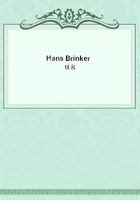
第51章
Through the HagueThe picture gallery in the Maurits Huis, *{A building erected by Prince Maurice of Nassau.} one of the finest in the world, seemed to have only flashed by the boys during a two-hour visit, so much was there to admire and examine. As for the royal cabinet of curiosities in the same building, they felt that they had but glanced at it, though they were there nearly half a day. It seemed to them that Japan had poured all her treasures within its walls. For a long period Holland, always foremost in commerce, was the only nation allowed to have any intercourse with Japan.
One can well forego a journey to that country if he can but visit the museum at The Hague.
Room after room is filled with collections from the Hermit Empire--costumes peculiar to various ranks and pursuits, articles of ornament, household utensils, weapons, armor, and surgical instruments. There is also an ingenious Japanese model of the Island of Desina, the Dutch factory in Japan. It appears almost as the island itself would if seen through a reversed opera glass and makes one feel like a Gulliver coming unexpectedly upon a Japanese Lilliput. There you see hundreds of people in native costumes, standing, kneeling, stooping, reaching--all at work, or pretending to be--and their dwellings, even their very furniture, spread out before you, plain as day. In another room a huge tortoiseshell dollhouse, fitted up in Dutch style and inhabited by dignified Dutch dolls, stands ready to tell you at a glance how people live in Holland.
Gretel, Hilda, Katrinka, even the proud Rychie Korbes would have been delighted with this, but Peter and his gallant band passed it by without a glance. The war implements had the honor of detaining them for an hour; such clubs, such murderous krits, or daggers, such firearms, and, above all, such wonderful Japanese swords, quite capable of performing the accredited Japanese feat of cutting a man in two at a single stroke!
There were Chinese and other Oriental curiosities in the collection. Native historical relics, too, upon which our young Dutchmen gazed very soberly, though they were secretly proud to show them to Ben.
There was a model of the cabin at Saardam in which Peter the Great lived during his short career as ship-builder. Also, wallets and bowls--once carried by the "Beggar" Confederates, who, uniting under the Prince of Orange, had freed Holland from the tyranny of Spain; the sword of Admiral van Speyk, who about ten years before had perished in voluntarily blowing up his own ship; and Van Tromp's armor with the marks of bullets upon it.
Jacob looked around, hoping to see the broom which the plucky admiral fastened to his masthead, but it was not there. The waistcoat which William Third *{William, Prince of Orange, who became king of England, was a great-grandson of William the Silent, Prince of Orange, who was murdered by Geraerts (or Gerard) July 10, 1584.} of England wore during the last days of his life, possessed great interest for Ben, and one and all gazed with a mixture of reverence and horror-worship at the identical clothing worn by William the Silent *{see above} when he was murdered at Delft by Balthazar Geraerts. A tawny leather doublet and plain surcoat of gray cloth, a soft felt hat, and a high neck-ruff from which hung one of the "Beggars'" medals--these were not in themselves very princely objects, though the doublet had a tragic interest from its dark stains and bullet holes. Ben could readily believe, as he looked upon the garments, that the Silent Prince, true to his greatness of character, had been exceedingly simple in his attire. His aristocratic prejudices were, however, decidedly shocked when Lambert told him of the way in which William's bride first entered The Hague.
"The beautiful Louisa de Coligny, whose father and former husband both had fallen at the massacre of St. Bartholomew, was coming to be fourth wife to the Prince, and of course," said Lambert, "we Hollanders were too gallant to allow the lady to enter the town on foot. No, sir, we sent--or rather my ancestors did--a clean, open post-wagon to meet her, with a plank across it for her to sit upon!""Very gallant indeed!" exclaimed Ben, with almost a sneer in his polite laugh. "And she the daughter of an admiral of France.""Was she? Upon my word, I had nearly forgotten that. But, you see, Holland had very plain ways in the good old time; in fact, we are a very simple, frugal people to this day. The Van Gend establishment is a decided exception, you know.""A very agreeable exception, I think," said Ben.
"Certainly, certainly. But, between you and me, Mynheer van Gend, though he has wrought his own fortunes, can afford to be magnificent and yet be frugal.""Exactly so," said Ben profoundly, at the same time stroking his upper lip and chin, which latterly he believed had been showing delightful and unmistakable signs of coming dignities.
While tramping on foot through the city, Ben often longed for a good English sidewalk. Here, as in the other towns, there was no curb, no raised pavement for foot travelers, but the streets were clean and even, and all vehicles were kept scrupulously within a certain tract. Strange to say, there were nearly as many sleds as wagons to be seen, though there was not a particle of snow.
The sleds went scraping over the bricks or cobblestones, some provided with an apparatus in front for sprinkling water, to diminish the friction, and some rendered less musical by means of a dripping oil rag, which the driver occasionally applied to the runners.